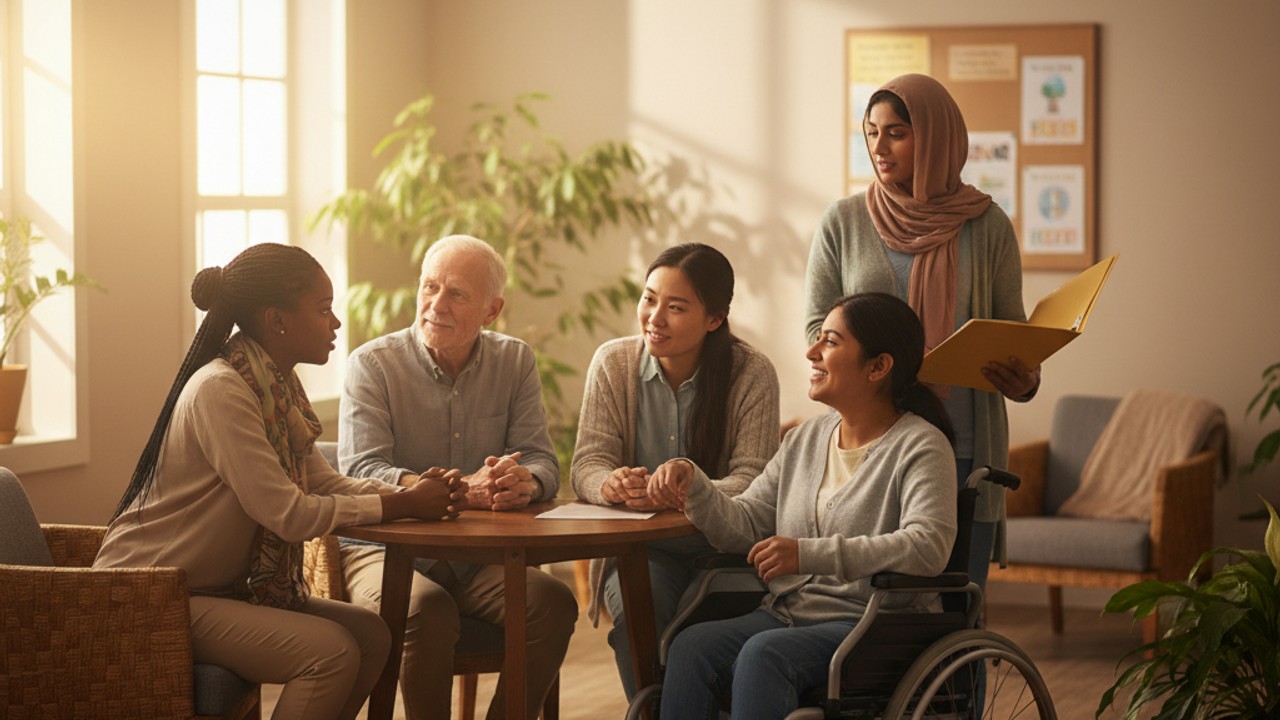In a quiet neighborhood on the outskirts of a bustling city, a small community center hums with activity. Here, a group of volunteers gather to provide more than just services—they offer hope, empowerment, and connection to those often overlooked by society. This story is not unique but is echoed in countless neighborhoods worldwide where under-served populations struggle with access to care, mental health support, and fundamental resources.
Understanding the Challenge
According to the World Health Organization, nearly 1.3 billion people globally live with some form of disability, many facing barriers to accessing necessary healthcare and support. In the United States alone, the National Alliance on Mental Illness reports that 1 in 5 adults experience mental illness each year, yet fewer than half receive any treatment (WHO Disability & Health Fact Sheet).
These numbers are even more alarming when filtered through the lens of economic disparity and geographic location. Rural communities and low-income urban areas have limited access to mental health practitioners and general health care. This lack often perpetuates cycles of poverty, stigma, and untreated illness.
The Power of Community Outreach
Organizations around the world are changing this narrative. One inspiring example is Open Paths Counseling Center in Colorado, which provides affordable, culturally sensitive mental health services tailored to under-served populations. Their outreach programs bring counseling to schools, shelters, and correctional facilities, where mental health resources are scarce (Open Paths Counseling Center).
Similarly, the non-profit Project ECHO has developed a revolutionary model to expand access to specialty care in rural areas by connecting primary care clinicians with expert specialists through tele-mentoring. This model empowers providers to deliver better care locally without patients needing to travel long distances (Project ECHO – UNM Health Sciences Center).
Empowerment Through Access
Access to care is more than availability; it involves creating environments where individuals feel safe to seek help. Mental Health America (MHA) emphasizes this in their recent efforts to reduce stigma and promote early intervention, highlighting that stigma remains a significant barrier preventing people from getting help (MHA StigmaFree Workplace).
Empowerment happens when communities are not just recipients of aid but active participants in their own healing and growth. Programs that train community mental health workers and peer counselors not only expand the reach of care but foster trust and cultural relevancy. The Center for Community Health and Development at the University of Kansas promotes this model, showing how community-driven initiatives lead to sustained improvements in health outcomes (Community Health & Development – KU).
Stories That Move Us
Consider the story of Maria, a young mother living in an under-resourced part of Miami. Struggling with postpartum depression but lacking insurance, Maria found solace through a community outreach program run by Health In Harmony, which combines mental health care with empowerment workshops. Today, Maria not only manages her mental health but is training to become a peer counselor herself, inspiring others in her community to seek help.
How You Can Help
Awareness alone is not enough. Action is the catalyst that can transform lives. Here are some ways to contribute:
- Support organizations like NAMI, Mental Health America, or Open Paths Counseling Center through donations or volunteering.
- Advocate for policies promoting equitable access to mental health and healthcare services, especially in under-served areas.
- Engage in community outreach by partnering with local groups to raise awareness and reduce stigma around mental health.
- Educate yourself and others about the importance of community empowerment in health outcomes.
Together, we can build bridges where walls once stood—connecting hearts and minds to foster healthier, more resilient communities. As the voices of those like Maria grow louder, so does our collective power to create lasting change.







